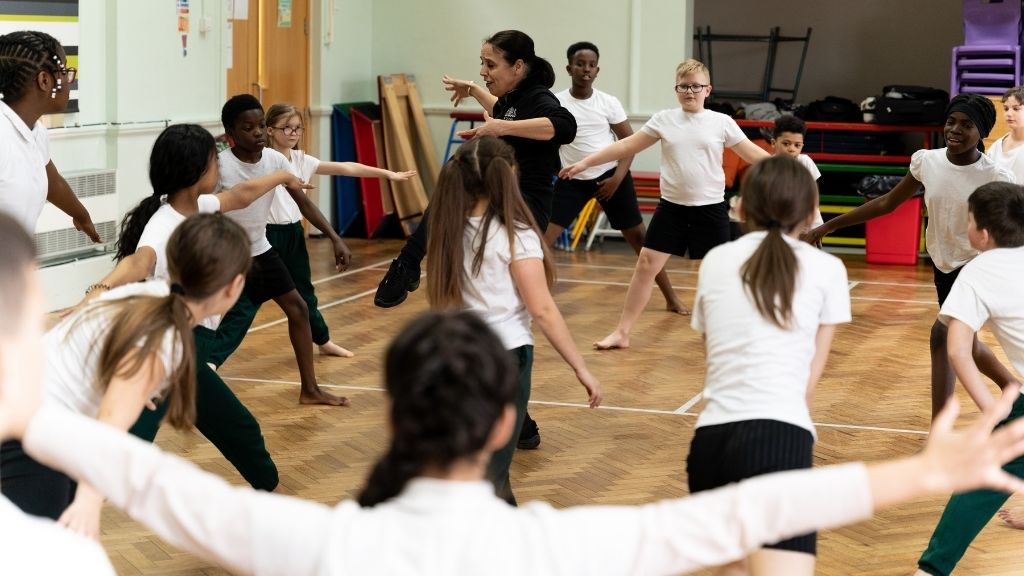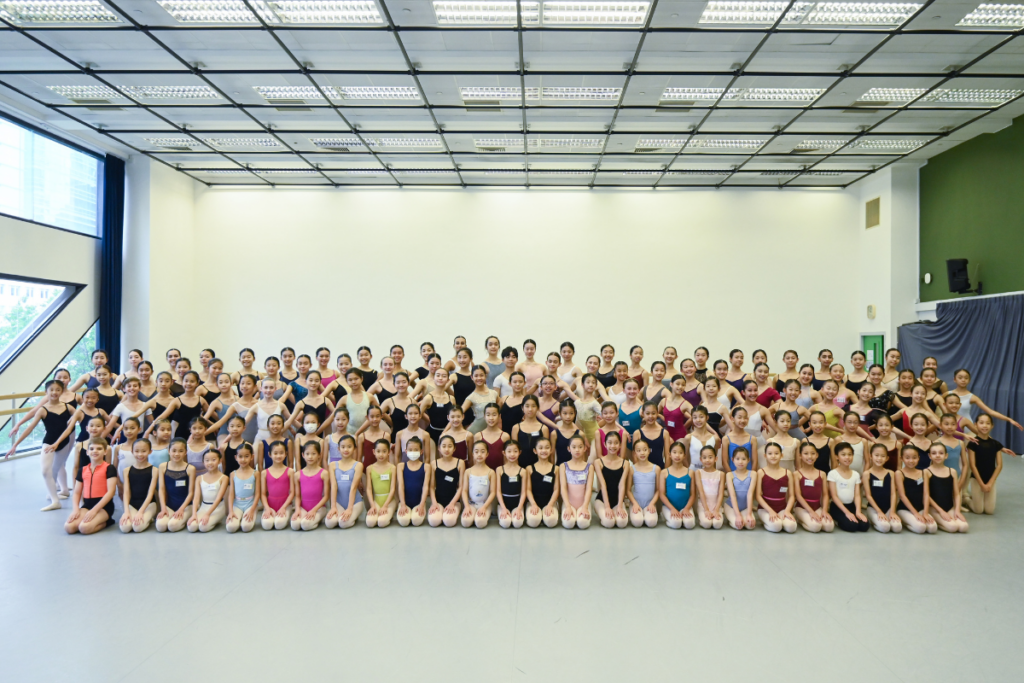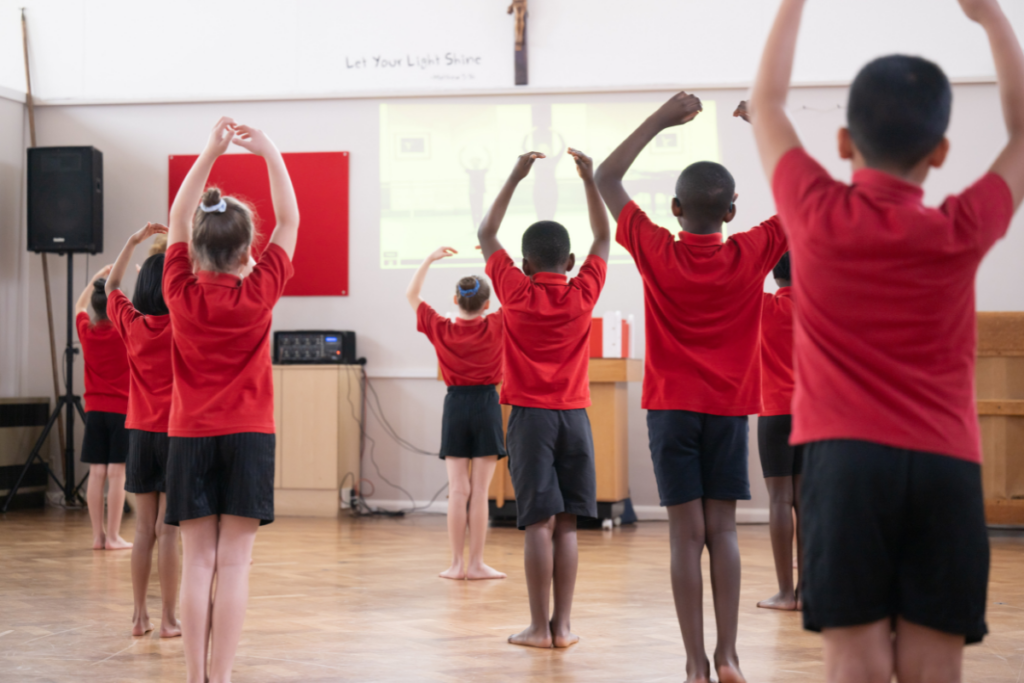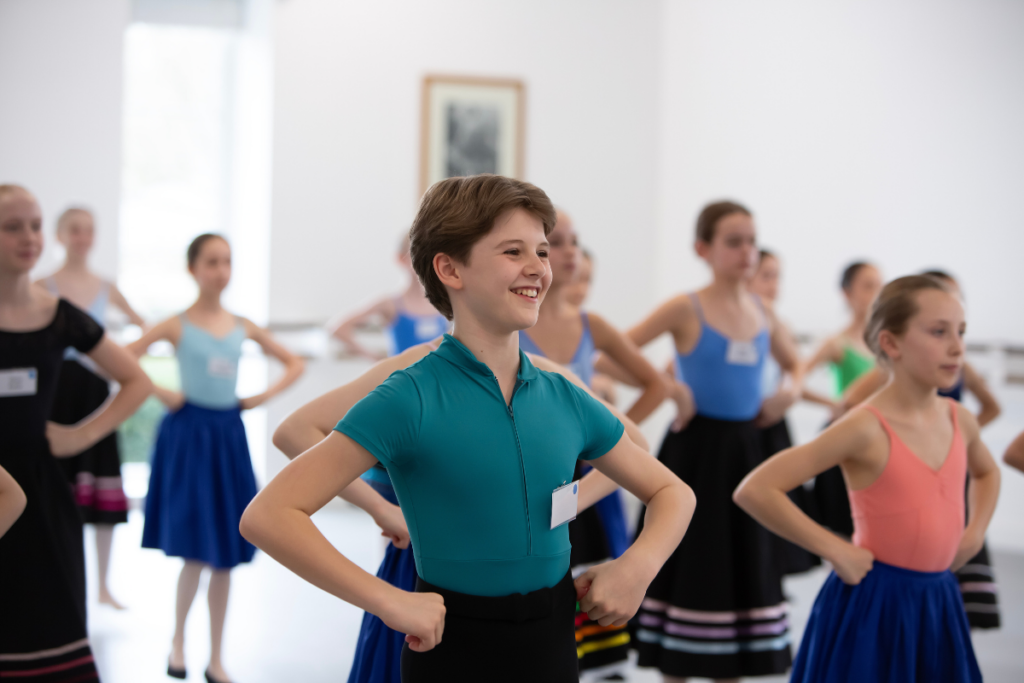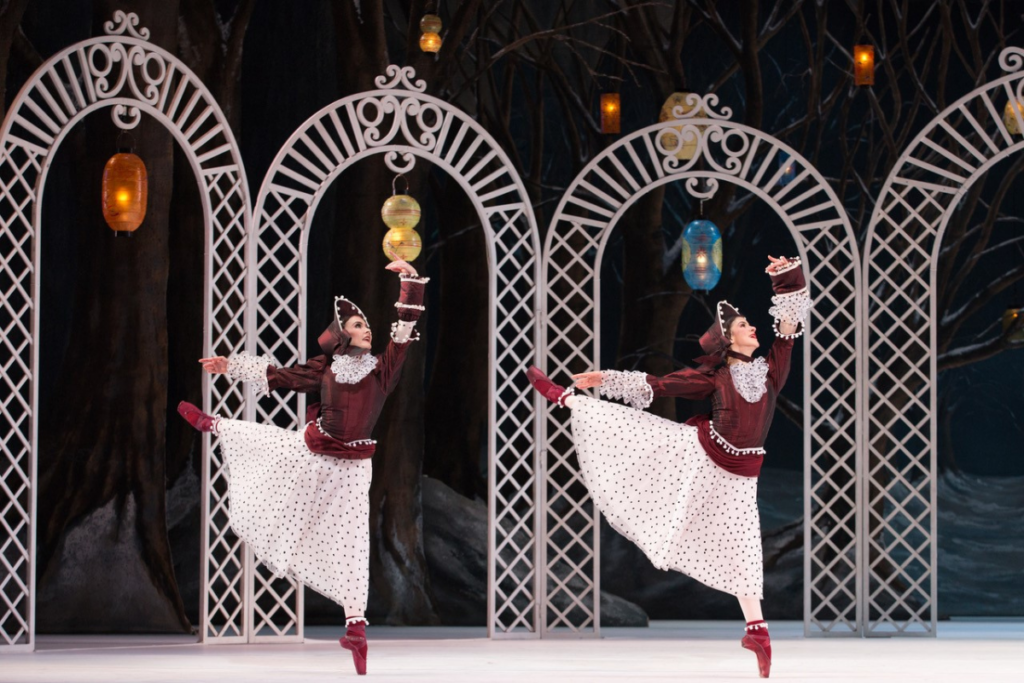Primary Steps on Demand
A piece by Victoria Collinson, Associate Programme and Primary Steps Manager at The Royal Ballet School
At The Royal Ballet School, we firmly believe that the lives of all children can be enriched when they take part in a creative ballet programme. As Artistic Manager of the School’s Associate and Primary Steps programmes, my personal mission is to get as many children in the UK involved in our new Primary Steps on Demand programme as possible.
Ballet is a fantastic genre of dance for children. It has structure, which can be exploited to suit the needs of learners rather than be used rigidly; develops physical skills that can be adapted to other genres of dance and/or sport (strength, coordination, balance and agility – I’m thinking Roger Federer here!); and a canon of work just waiting to be explored. Some in the wider dance community may dispute that ballet is a suitable genre to use as a means to give children a dance education. Historically, many ballet teachers tended to use “practices that subordinate the student [which] have long been considered not just inextricable from, but necessary for professional quality ballet training” (Zeller, 2017, 99). This approach, where a student has no voice but must conform to exactly what is demanded of them, has no place at The Royal Ballet School. A new culture is emerging in ballet, one which is wholeheartedly embraced by the School, where students are active partners with their teacher and feel in control of their own learning. This approach relies on an environment where there is mutual respect between student and teacher.
I strongly believe, and will always fiercely argue, that ballet can be a fantastic way to get children dancing and reaping the rewards that dance can bring. At The Royal Ballet School, we strive to ensure our teachers put the needs of their students at the heart of their practice, resulting in an enriching studio climate. This approach is also adopted by Primary Steps, where the philosophy of teaching ballet demands that children develop both technically and creatively as dancers, by encouraging them to be inquisitive, independent as well as collaborative thinkers. Learning should be fun, so a Primary Steps in-person and on Demand class will always contain ample opportunities for children to experience the pure joy of dance. This approach engenders an environment where young people can develop not just physically, but also emotionally and intellectually. This rounded, whole-person development is one of the greatest gifts that dance, including the Primary Steps on Demand programme, can give.
In the past, one of Primary Steps’ biggest limitations (and that of many other fantastic ballet and dance outreach programmes) has been the fact it can only reach a very small proportion of primary school pupils who could benefit from the programme[1]. One of the silver linings of the recent pandemic was that we have been forced to adapt our work, which has unlocked new possibilities of offering online and on demand programmes to a wider audience. Being able to teach in person will always be the ideal. However, our expertise in developing work that can be accessed remotely has developed (and will continue to do so) and can provide extremely stimulating educational experiences for children. Here is where our new Primary Steps on Demand programme comes into its own, enabling The Royal Ballet School to connect with more young people, sharing the multitude of benefits that Primary Steps offers.
What Primary Steps on Demand offers
The Primary Steps on Demand programme is structured to be used by primary school teachers, even if they have no experience in teaching dance. Lessons are pre-recorded and led by a Primary Steps teacher, accompanied by a musician with either Primary Steps students demonstrating (relatable for the school children accessing the content) or Royal Ballet Upper School students (for a dash of inspiration!)
Currently, the content is split into two levels, one for seven to nine-year-olds and the second for nine to eleven-year-olds. Lessons are divided into two main areas, Exploring Ballet and Exploring the Curriculum. The former delivers a series of lessons designed to systematically develop ballet knowledge and dance skills. The latter provides a way to enhance learning not only in ballet but through experiential learning in specific curriculum areas. Each of these classes comes with teacher and pupil resources to support teaching and learning. This is a particularly exciting prospect for children who may find learning in a traditional classroom environment a challenge.
The beauty of a cross-curricular approach is that it enables learners to build connections across their learning, helping them to combine different skills and areas of knowledge, resulting in ideas that become more effectively embedded in both mind and body. Professor of Learning Sciences, Mitchell J. Nathan is a proponent of embodied learning, who highlights the downfalls of current learning practices: “Educators specifically design classrooms to restrict students’ physical and social interactions” even though “there are many circumstances where learning is demonstrably improved by engaging one’s body” (Nathan, 5, 2022). With programmes such as Primary Steps on Demand we are beginning to provide an alternative way of learning.
To support the lessons there is also a series of single exercise videos covering warm-ups, cardio blasts, and a whole host of individual exercises. This will enable teachers to design their own bespoke lessons. A ‘Discover More’ area provides short but in-depth videos on topics from how to do hair for ballet (considering all hair types, not just Caucasian hair) to exploring items from the School’s collections.
While it’s not essential for the delivery of the programme to have primary school teachers with prior experience in teaching dance, we believe that up-skilling teachers in this area will inevitably enhance the experience for their pupils. Therefore, a series of Zoom CPD sessions have been developed to explain how to make the best use of the programme, how to ensure safe practice is always followed, dance teaching fundamentals and some basic mechanics of ballet. The aim is not for primary school teachers to become ballet teachers but for them to gain enough knowledge to utilise the Primary Steps on Demand resource to the full.
The CPD sessions will also be pivotal to the success of the programme in schools where there are children with, for example, additional learning needs, sensory impairments, or physical disabilities. This will help teachers adapt material successfully to the needs of their pupils. When filming the videos, the teachers leading will be mindful to use inclusive language as much as possible, particularly in the short exercise sections where movements are explored in non-traditional ways.
We hope that the Primary Steps on Demand programme will provide an exciting, stimulating educational platform for primary schools throughout the UK. In addition to this, I hope it challenges us here at The Royal Ballet School to keep asking questions about what ballet can be, how we can engage more young people in what we do, and how we ensure the art form continues to flourish in the twenty-first century.
Find out more about Primary Steps on Demand and view sample classes
Zeller, Jessica (2017): “Reflective Practice in the Ballet Class: Bringing Progressive Pedagogy to the Classical Tradition” Journal of Dance Education, vol. 17, no. 3, 2017, pp. 99-105.
Nathan, Mitchell, J. (2022): Foundations of Embodied Learning: A Paradigm for Education, Routledge: New York and Oxon.
[1] Primary Steps currently partners with 28 primary schools across 5 centres in England. From September 2022 we will add 6 schools from Cardiff to our programme.

